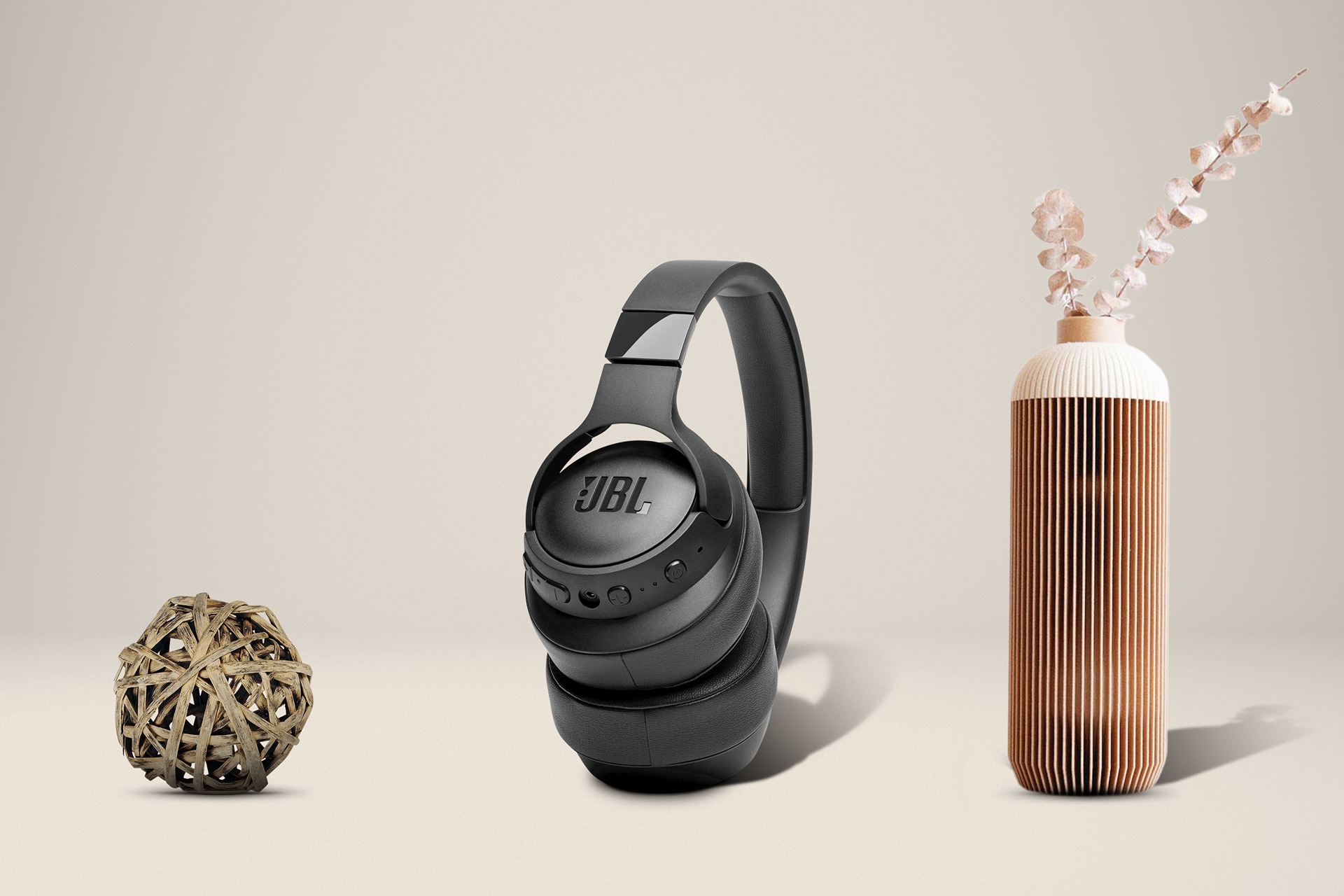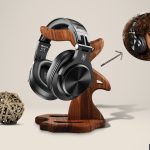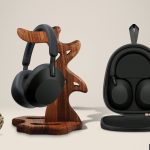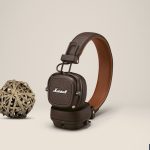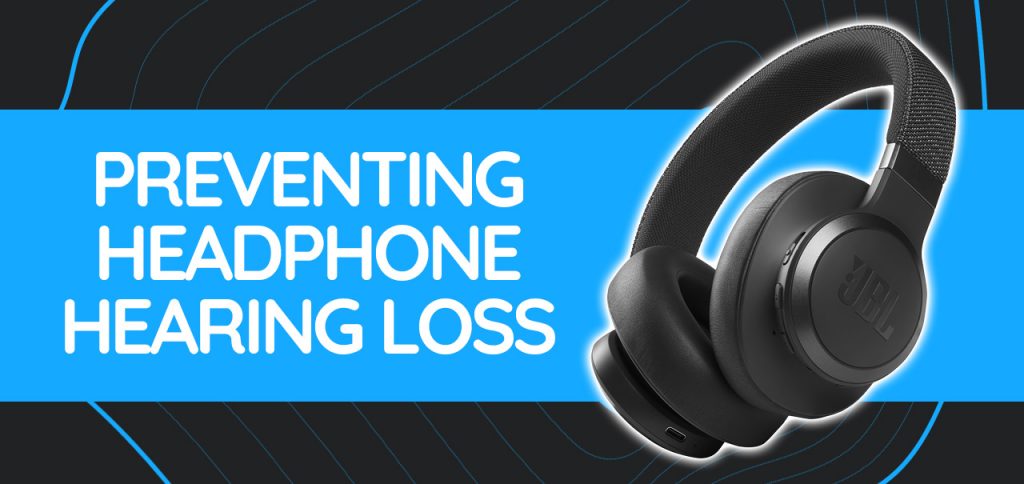
Do you worry that wearing headphones for a long period of time can damage your hearing? We’ll look at the steps you may take to avoid hearing loss while still appreciating music in this article.
We’ll go over everything you need to know to protect your ears, from setting volume restrictions to taking frequent breaks. To find out more andmake sure you’re taking the proper mesures to protect your hearing for years to come, keep reading.
Key Takeaways
- Using headphones has become a regular routine for most of us, and even if it seems quite entertaining it may lead to hearing damage.
- To prevent hearing loss from headphones, consider, using volume-limiting apps, limiting your headphone use, purchasing noise-cancellation headphones, and checking your hearing regularly.
- Some symptoms of hearing loss include; asking others to repeat themselves, buzzing hears or noise ringing, and dificulties in understanding words.
- Whenever you encounter some of these above-mentioned symptoms consider checking your hearing with a professional.
- Never use your headphones while sleeping.
So, how to stop headphones from causing the hearing loss?
Although using headphones can be a lot of fun, it’s important to watch out for our ears. Here are some simple techniques for protecting your ears when listening to music:
Reduce the volume

In order to prevent the loss of hearing, in terms of volume reduction you can consider downloading apps or using built-in apps on some phones to set a maximum volume limit for your device.
Another thing you might also consider is to keep an eye on the decibel level. Many devices feature signs for the decibel level, which lets you know how loud the sound is. The safe limit for continuous exposure is 85 dB, so try to keep the volume there or lower.
Also, be aware of your own listening choices. Try to keep the volume at a resonable level, approximately 60% of the maximum. Breaks can also help you in ear relief from the pressure of your headphones.
Use noise-cancellation headphones
With the fact that they use unique technology to cancel out background noise, noise-canceling headphones are really cool.
However, you should know how they work. Background noise is reduced by noise-canceling headphones using specialized technology, which reduces the need for high volume.
Consider using them in noisy environments – They are very useful in noisy environments like trains, airlines, and crowded public spaces. Although, while using them, it’s important to keep the volume at a balanced level that’s neither too quiet nor too loud.
Time restriction
It’s great to listen to music while wearing headphones, but we should be careful to avoid damaging our ears by doing so.
Think of setting a daily time limit for the usage of your headphones and you should consider sticking to that time limit. You should generally limit your daily headphone use to one hour, although you can change this depending on your needs and hearing sensitivity.
There are also timer apps that help in reminding you to restrict your headphones use. You can track your headphone use by using one of the various smartphone apps that are available. You can set a timer with these aplications, and they’ll notify you when it’s time for a break.
Another thing you might consider is avoiding wearing them while you sleep. Using headphones while you sleep can possibly damage your inner ear, therefore it is not recommended.
Check your hearing regularly
It’s important to look after and maintain the health of our ears. That can be done by finding a hearing specialist who is able to assess your hearing and provide advice on how to protect it. Also, consider regular appointments to test your hearing.
After that, the hearing specialist will give you advice on how to maintain the health of your ears following the test; make sure to follow it.
Another thing you might also want to keep in mind is to wear hearing protection; use earplugs or noise-canceling headphones if you spend a lot of time near loud noise, such as at a concert, and be aware of how long you use your headphones, and what volume you are listening at.
Hearing loss symptoms?
There are a few warning signs to watch out for despite the fact that it may always be easy to tell if you’re losing your hearing. Below are some typical signs of hearing loss to watch out for:
- Being unable to hear conversations in noisy circumstances, such as a party or concert.
- Asking others to repeat themselves again and over.
- Unable to pick up high-pitched noises, such as a whistle or a bird chirping.
- Hearing buzzing, whistling, or ringing in your ears (this is called tinnitus).
- Words and sentences are difficult for you to understand, especially in a busy environment.
- Skipping gatherings because it’s difficult to hear and communicate.
It’s a good idea to speak with an audiologist or ear, nose, and throat specialist to have it checked out if you think you could have a hearing issue. They can perform some tests and inform you with precision.
How to treat hearing loss?
Since our ears don’t always function as they should, there are things we can do to help this situation.
We sometimes mistake in trying to be doctors ourselves and we end up worsening our situation. One important step is always to first speak with an expert. These qualified people can assess the situation and advise you on your future steps
Another piece of advice would be a cochlear implant. This is a hearing aid that is surgically placed into the inner ear. It might seem frightening at first, but you won’t believe how helpful they are in improving your hearing abilities.
Another thing I mostly advise people with is to change their lifestyle by avoiding loud sounds and other measures that help in preventing hearing loss.
The Human Hearing Range:
A person with normal hearing, when it comes to pitching its hearing range starts low at 20 Hz and with the highest possible frequency being 20,000Hz.
As for the itensity, a human can hear sound waves from 0 dB (decibels) up to 140 dB (decibels).
While we can hear more than 140 decibels, it is too painful for our ears, if you expose yourself to such loud noises you are at high risk of permanent damage to your hearing.
For example, the 140+ dB occurs and even exceeds further, on wars from gunshots, grenades, and even fireworks can reach higher than 140 dB.
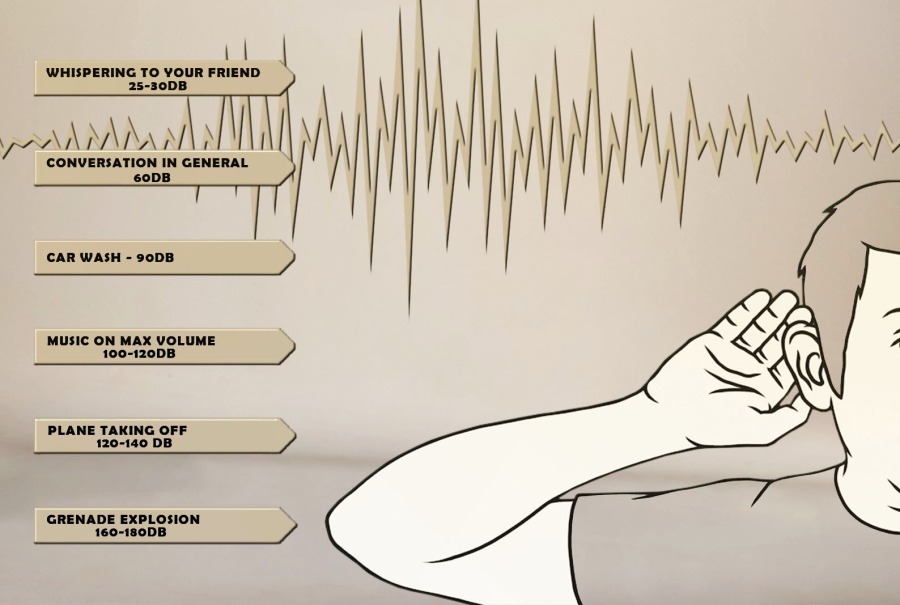
Final Words
To sum up, using headphones can be a practical way to enjoy audio content like music, but it’s important to be careful while using them for long periods of time to avoid hearing loss.
Using volume-limiting apps, keeping the volume at a reasonable level, taking regular breaks, limiting daily usage time, using noise-canceling headphones in noisy places, and regularly monitoring your hearing are some easy ways to prevent hearing loss from headphones.
It’s important to understand how sensitive your hearing is and to take the appropriate measures, such as wearing hearing protection. You may protect your hearing while still continuing to enjoy music and other audio content by following these rules.
Further Reading
Giving advice is the best thing that I know how to do, and since I mentioned above choosing the right headphones I’d recommend you get a pair of Koss headphones since they are easy on your ears and are very comfortable. On the other hand, if you are already suffering from ear health problems such as tinnitus, I recommend you take a look at our article on the best headphones for tinnitus.
Have you ever wondered why headphones have magnets? If so, read this article to learn more.
Have fun!
Sound Technician
I’m a sound technician, ensuring that your events and shows are heard loud and clear. Crafting audio broadcasts, studio recordings, and live mixes with finesse to provide the best quality sound experience.

